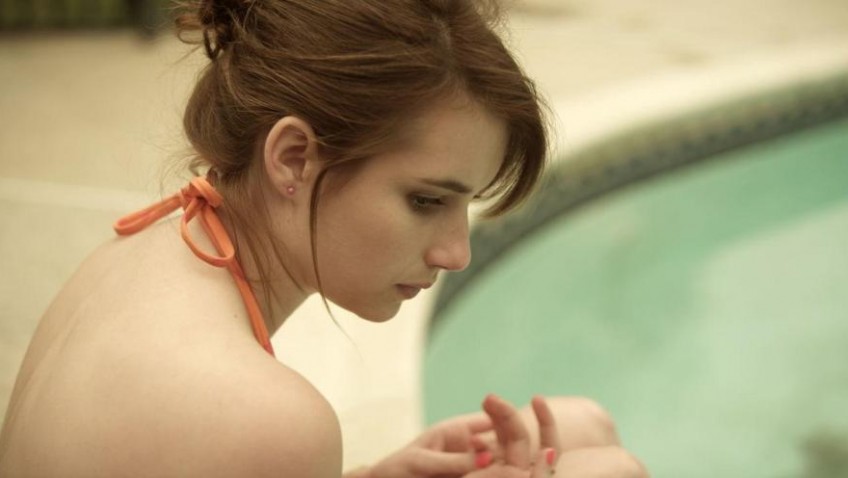Palo Alto (October 17, 2014)
The youngest member of the Coppola dynasty to grace our screens, 27-year-old first-time feature director Gia Coppola is the grand-daughter of Francis Ford (The Godfather) and the niece of Sophia (Lost in Translation).
Her father, Gian-Carlo Coppola, died at age 22 in a speedboat accident driven by an actor in a break during one of Coppola’s films. Gia, who dropped out of high school, grew up on the film sets of her famous grand-dad and aunt before turning to photography, and now film.
So this well-made, but hardly groundbreaking, film about the growing pains of aimless, upper middle-class teenagers in Palo Alto, California is a natural for Gia. Gia’s script is an adaptation of actor/writer/director James Franco’s Palo Alto: Stories.
Coppola does a good job of trying to hold together what are, after all, episodic short-stories about different characters – even if nothing like a plot or structure emerges. That her depictions of teenage confusion, frustration, boredom, artificial stimulation and first love are so convincing is the film’s strength, but, by the same token, makes it feel very familiar.
From her aunt’s filmography alone, we can see the influence of The Virgin Suicides and, more recently, The Bling Ring, the true story about a group of spoiled teens who rob celebrities for kicks and the status of a better wardrobe.
If the teens in Palo Alto are not as overtly suicidal as the girls in The Virgin Suicides, most of them are self-destructive. We get a tour of the binge drinking, the wild parties, the immature sex, the reckless pranks gone bad and brushes with lecherous adults.
This self-destructive bent is announced early on in an effective and promising opening scene. Fred (Nat Wolff, The Fault is in the Stars) is sitting in a parked car with his best friend Teddy (new comer, Jack Kilmer, Val Kilmer’s son), bantering about kings and power.
Suddenly he accelerates a few meters to smash into the concrete wall in front of them. The symbolism is, of course, that Fred sees life as a dead end. It is clearly a combination of lack of inner resources and insecurity that leads Fred to bully his classmates, treat women like chattels and act recklessly, if not criminally.
Teddy has inner resources (he is an artist), respect for women and a love of books (even if they are related to his childhood), but self-destructively follows Fred, always, it seems, caught in the act and taking the blame.
Teddy likes April (Emma Roberts, terrific), a rare virgin at school, but he is shy and waits until the film is just about over to tell her. It’s a shame because she likes him, too. But April has a crush on her handsome, 30-something year-old soccer coach, Mr B (James Franco, 127 Hours, Pineapple Express), who seems so superior to the immature boys her age.
But April has yet to learn that this authority figure is a dirty-old-man who has another ‘baby sitter’ on the side.
Just why April’s mother (Gia’s real life mother, Jacqui Getty) and step-father (Val Kilmer, Teddy’s real life father) are not bothered that their daughter is spending so much time baby-sitting for the young, single, bachelor suggests how times have changed.
by Joyce Glasser, MT film reviewer




